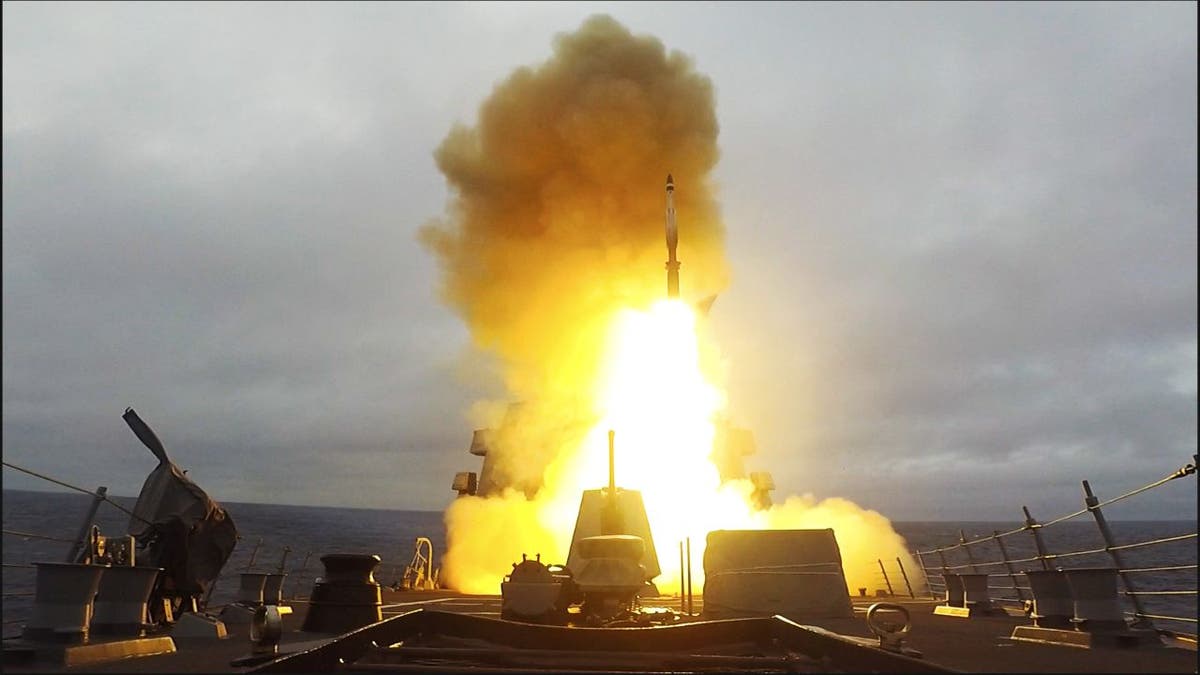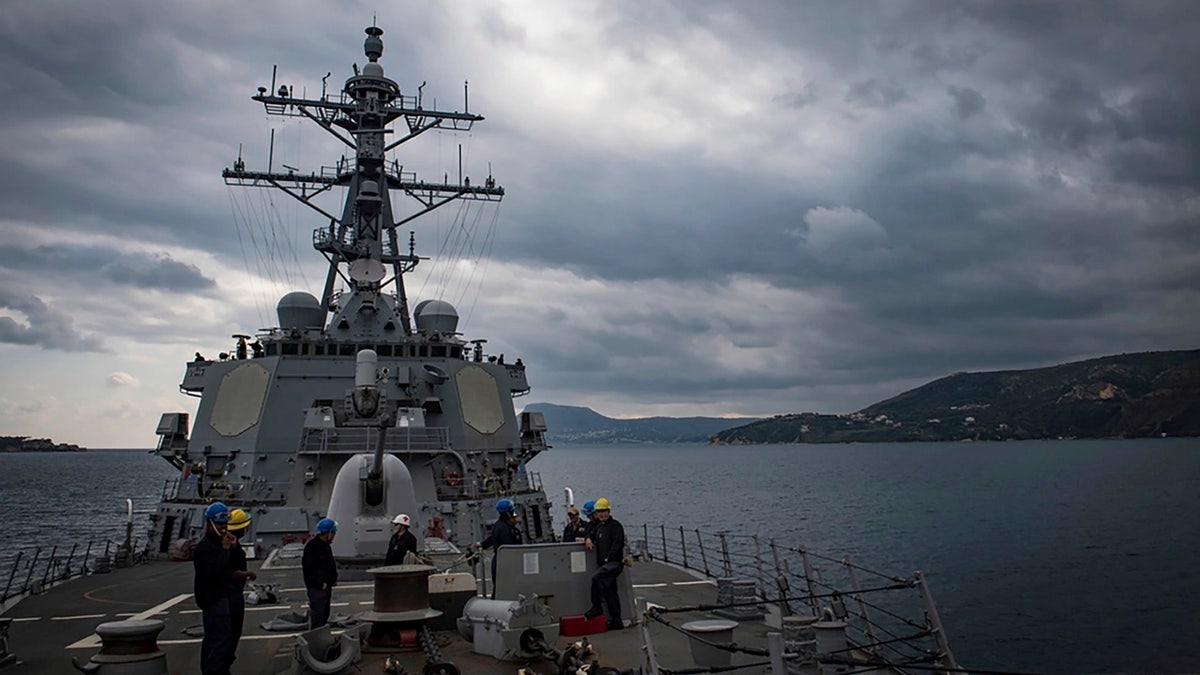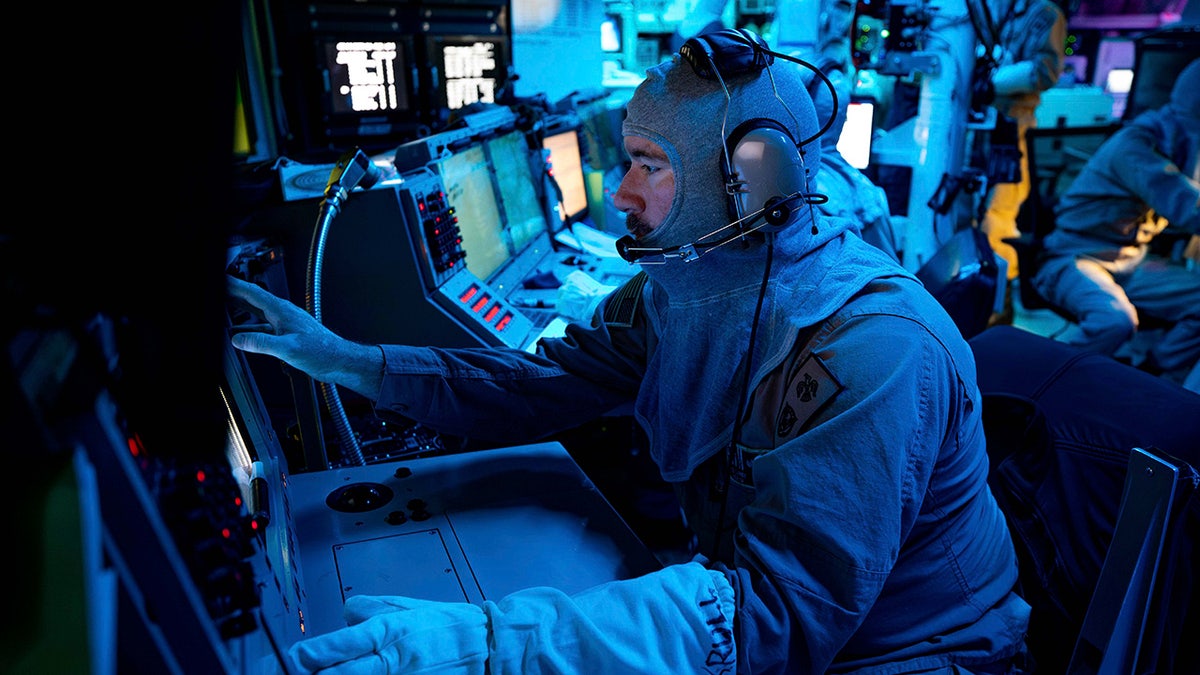Rebecca Grant on Houthi attacks: ‘It's time for us to unleash our naval forces’
IRIS Independent Research President Rebecca Grant discusses how the U.S. should respond to Houthi drone and missile attacks in the Red Sea on 'Fox News Live.'
Biden’s next move in the Red Sea wars is critical. If we "go to war" in the Mideast, it could be over Houthi hits on Red Sea shipping. "Regarding the Houthis, these attacks are reckless, dangerous, and they violate international law," Secretary of Defense Lloyd Austin said at a press conference in Israel on December 18.
Austin later announced Operation Prosperity Guardian, calling it an important new multinational initiative to deal with the Houthi attacks. Warships from Britain, France, Japan and other nations were already in the Red Sea. It just takes American leadership to ramp up naval capabilities.
It’s a mess out there. The Houthis have been launching drones, missiles and hijackers against Red Sea ships for two months, and a notorious Iranian spy ship is helping them. No wonder major shippers Maersk, MSC, Hapag-Lloyd and other commercial cargo carriers paused their Red Sea traffic.
PENTAGON ANNOUNCES NEW RED SEA INTERNATIONAL MISSION TO COUNTER ESCALATING HOUTHI ATTACKS ON SHIPS
Now BP won’t send its oil tankers into the Red Sea. Oil prices have jumped up. That’s a sad tactical victory for the Houthi rebels of Yemen and their masterminds in Iran.

The USS Paul Ignatius ship (DDG 117) launched an SM-3 missile during an exercise in the Atlantic Ocean on May 26, 2021. The moment was captured by MC2 Nathan T. Beard. (U.S. Navy/SWNS)
Details are light. But one thing’s for certain. Led by the U.S. Navy’s Fifth Fleet, America and its allies now have enough firepower in and around the Red Sea to shut down Houthi attacks.
At the center of the action are the U.S. Navy’s Aegis guided-missile destroyers, which the Navy calls DDGs.
You know the guided-missile destroyer USS Carney started nabbing Houthi drones and rockets back in October. U.S. Army Gen. Michael Erik Kurilla, who is commander, United States Central Command, was so impressed that he helicoptered out to the Carney last week to deliver 1,000 pounds of barbeque for the crew. They promptly shot down another 14 Houthi drones on Saturday.
Today’s destroyers are a far cry from the valiant "tin cans" of World War II. The phenomenal Aegis combat system was originally designed to shield aircraft carriers in Cold War days. In 1991, the first Aegis destroyer, DDG-51 USS Arleigh Burke, put to sea.
The Burke-class DDGs are heavily armed and have great sea-keeping abilities in rough seas. The U.S. Navy has 70 DDGs in the fleet now, and 17 more under construction or on contract. Simply put, these guided-missile destroyers and their crews are the heart of the Navy.
The Aegis SPY-1 radar family on board these destroyers can track from the horizon to more than 100 miles away and network with other sensors. Picture sailors in ball caps and those large, pale green earphones sitting in the blue light of the windowless combat control center deep within the ship.
With Aegis, those sailors can take on anything from a small Houthi drone to a low-flying cruise missile to an intermediate-range ballistic missile. Of course, the DDGs can also carry Tomahawk missiles for precision land attack, launch anti-ship missiles, and go after enemy submarines, too. Pretty much your lethal Swiss Army Knife of naval warfare.
So far, the Houthis, who are not great naval tacticians, have only managed a few drones at a time. Rest assured, the Aegis destroyers can handle more. Their combination of missiles and guns and electronic countermeasures would be lethal against bigger drone swarms, too.

This Nov. 12, 2018, photo shows The USS Carney in the Mediterranean Sea. The American warship and multiple commercial ships came under attack Sunday, Dec. 3, 2023, in the Red Sea, the Pentagon said, potentially marking a major escalation in a series of maritime attacks in the Mideast linked to the Israel-Hamas war. (Mass Communication Specialist 1st Class Ryan U. Kledzik/U.S. Navy via AP)
Very soon, shipboard lasers will greatly increase firing capacity. The Navy installed the first Helios laser weapon on an Aegis destroyer back in 2022. Helios stands for High-Energy Laser with Integrated Optical Dazzler and Surveillance.
Basically, the laser weapon can fry guidance and control, turning a drone into a blind, charred Frisbee. (Yes, the Navy has figured out how to shoot 60 Kilowatt lasers in the damp marine environment. Navy lasers have been in operational test almost 10 years.)
Remember the Aegis destroyers also carry the very precise Tomahawk missile, perfect for striking Houthi military targets in Yemen.
Here’s the kicker. Biden would be wise to let our U.S. Navy send a message to Iran – and to China.
Oh yes, the Chinese are watching our Navy at work in the Red Sea. And not just from Beijing. Right now, several Chinese warships of an "anti-piracy task force" are perched near the Red Sea gateway at Bab el-Mandeb Strait, not far from the U.S. Navy carrier strike group USS Eisenhower. You can bet they are sucking up data on U.S. naval operations.
The tactics being used by the DDGs against the Houthis and their Iranian overlords tell us a lot about the U.S. Navy’s ability to cope with similar mischief from China in the Pacific.
CLICK HERE FOR MORE FOX NEWS OPINION
Let’s think ahead. If the Houthis can thwart international shipping in the Red Sea, just imagine what China’s navy can do near its own coast. Close to 100,000 vessels transit the Straits of Malacca each year, dwarfing the 17,000 transits via the Bab El Mandeb. China needs to see the U.S. and allies deliver a sharp message: shutting down maritime commerce is not OK.

In this image provided by the U.S. Navy, Chief Fire Controlman (Aegis) Kenneth Krull, assigned to the USS Carney (DDG 64), mans the combat systems coordinator console in the combat information center during a general quarters drill on Oct. 14, 2023, in the Eastern Mediterranean. The warship sailing near the Bab el-Mandeb Strait shot down a drone launched from Yemen on Wednesday, Nov. 29, the U.S. military said. (Mass Communication Specialist 2nd Class Aaron Lau/U.S. Navy via AP)
China’s navy is bigger than ours. War games in the Pacific always come down to controlling the sea lane approaches to China. However, the U.S. Navy DDGs can dominate missile defense and offensive strike warfare at sea. They are gaining valuable live fire experience – something China’s "People’s Liberation" navy does not have, I’m glad to say.
Biden is taking a risk if he does not act against the spiraling threat to freedom of the seas. Back in 1988, President Ronald Reagan launched Operation Praying Mantis and took out significant Iranian naval capability in the Persian Gulf. It worked. Iran backed down from its sea mining and other reckless naval operations.
CLICK HERE TO GET THE FOX NEWS APP
Now China and Iran are both waiting to see what the U.S. Navy and allies will do. Here’s Biden’s chance to send a message that will reverberate from the Red Sea to the Pacific.
Get the barbecue ready.












































